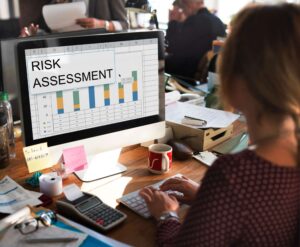In the fast-paced world of online transactions, ensuring the security measures of high-risk payment processing is crucial. With cyber threats on the rise, businesses operating in high-risk industries face unique challenges when it comes to safeguarding their payment transactions. From financial institutions to e-commerce platforms, implementing robust security measures is essential to mitigate risks and protect sensitive customer data.

High-risk merchant service providers play a pivotal role in enhancing payment security for businesses operating in industries such as gaming, adult entertainment, and nutraceuticals. These specialized providers offer tailored solutions designed to address the specific needs and challenges associated with high-risk payment processing.
When it comes to securing high-risk payment transactions, there are several best practices that businesses should consider implementing to fortify their payment security measures. These practices include encryption and tokenization techniques, multi-factor authentication, advanced fraud detection tools, adherence to industry standards, selection of secure payment gateways, regular security audits and updates, as well as comprehensive employee training and awareness programs.
Encryption and Tokenization:
Implementing end-to-end encryption and tokenization techniques can help protect sensitive payment data throughout the transaction process. Encryption scrambles data to make it unreadable to unauthorized parties, while tokenization replaces sensitive information with unique tokens, further reducing the risk of data breaches.
Multi-Factor Authentication (MFA):
Require multiple forms of authentication, such as passwords, biometrics, or one-time passcodes, to verify the identity of users and prevent unauthorized access to payment systems. MFA adds an extra layer of security beyond traditional password protection, making it harder for cybercriminals to compromise accounts.
Fraud Detection and Prevention:
Utilize advanced fraud detection tools and algorithms to monitor transactions in real-time and identify suspicious activities. Machine learning algorithms can analyze patterns and anomalies to detect fraudulent behavior and trigger alerts for further investigation.
Compliance with Industry Standards:
Adhere to industry-specific security standards and regulations, such as PCI DSS (Payment Card Industry Data Security Standard), to ensure the protection of payment card data. Compliance with these standards demonstrates a commitment to security and helps build trust with customers and partners.
Secure Payment Gateways:
Choose reputable payment gateways that offer robust security features, such as data encryption, fraud monitoring, and PCI compliance. Secure payment gateways act as a secure bridge between the customer, merchant, and financial institution, ensuring the safe transmission of payment information.
Regular Security Audits and Updates:
Conduct regular security audits and assessments to identify vulnerabilities and weaknesses in your payment systems. Keep software and systems up-to-date with the latest security patches and updates to mitigate known vulnerabilities and protect against emerging threats.
Employee Training and Awareness:
Train employees on security best practices and protocols to minimize the risk of human error and insider threats. Educate staff about the importance of safeguarding sensitive information and recognizing potential security threats, such as phishing scams and social engineering attacks.
By implementing these best practices and collaborating with high-risk merchant service providers, businesses can strengthen their payment security posture and mitigate the inherent risks associated with high-risk payment processing. Investing in robust security measures not only protects against financial losses and reputational damage but also fosters trust and confidence among customers.
Conclusion:
Security measures are paramount when it comes to high-risk payment processing. By leveraging encryption and tokenization, implementing multi-factor authentication, and utilizing advanced fraud detection tools, businesses can enhance their payment security and protect against cyber threats. Partnering with reputable high-risk merchant service providers can further bolster security efforts and ensure compliance with industry standards. In today’s digital age, prioritizing payment security is essential for safeguarding sensitive data and maintaining trust with customers.
Ready to fortify your payment security? Contact reputable high-risk merchant service providers for tailored solutions today!






